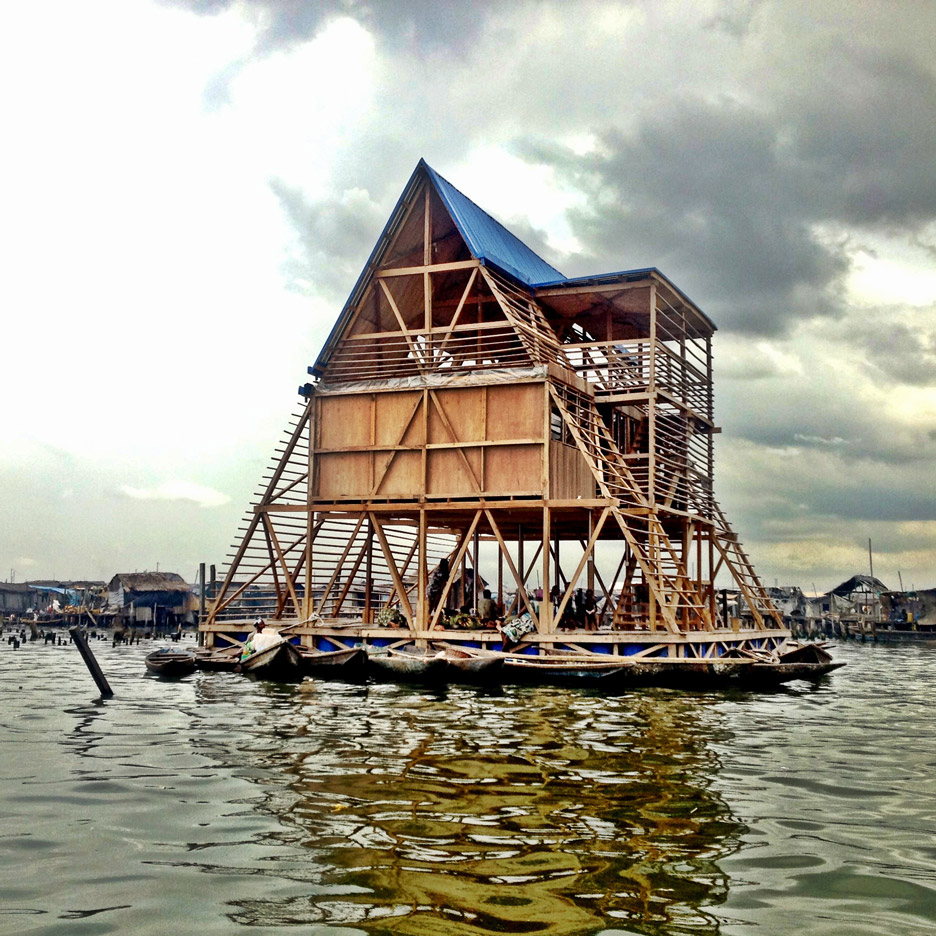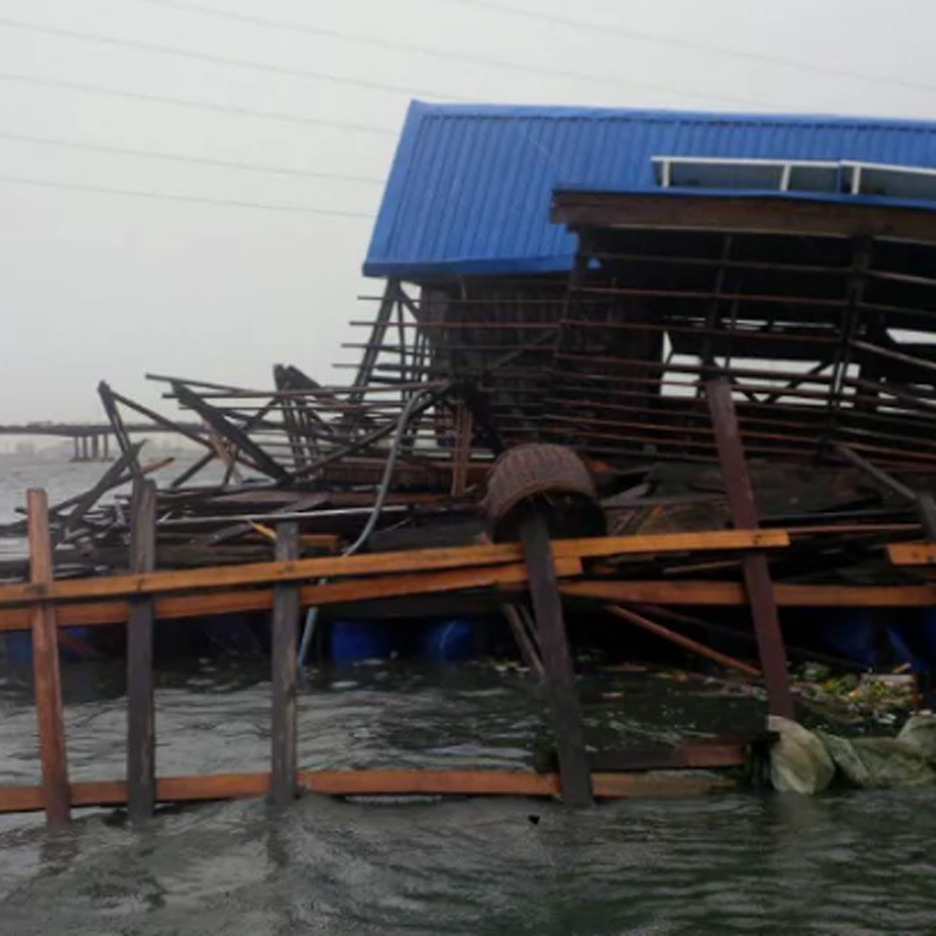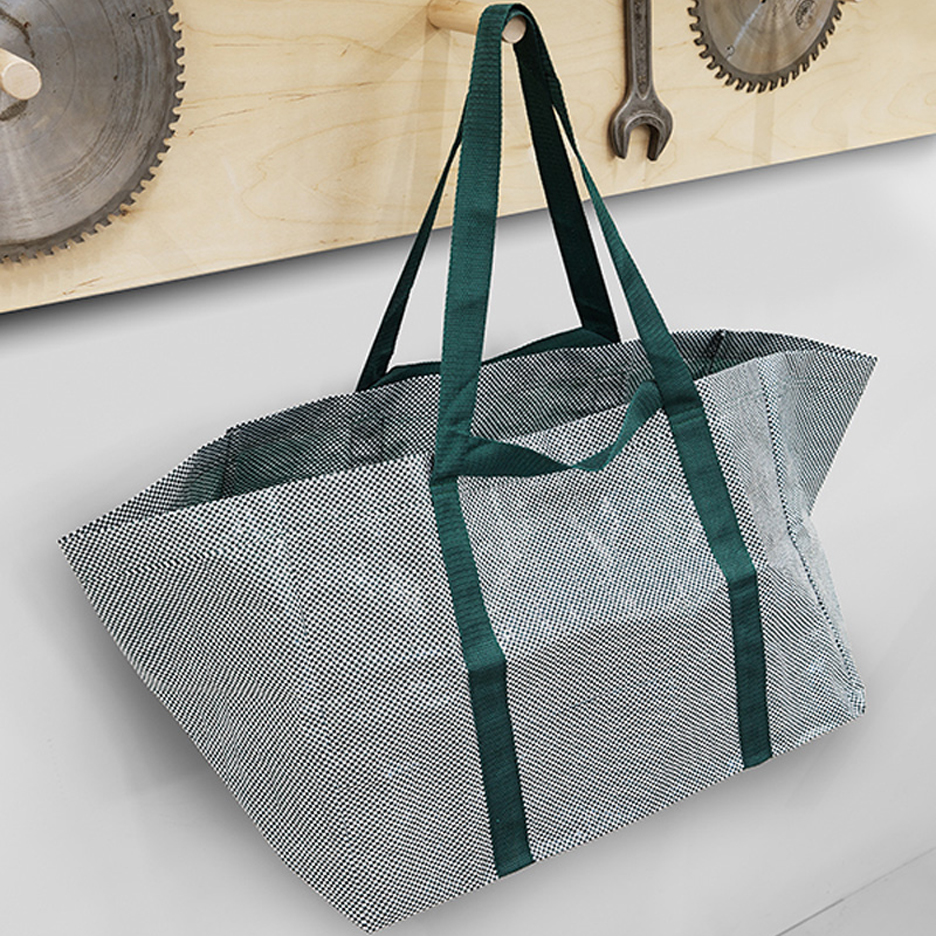
"Floating architecture is still a great idea for Lagos"
Comments update: architect Kunlé Adeyemi's award-winning Makoko Floating School collapsed last week, sparking a debate about the project's credentials and the media's previously flattering coverage of its design. But does the floating-school concept still have a future?

Sink or swim: news emerged that Adeyemi's buoyant prototype school building in Lagos, Nigeria, had collapsed following heavy rainfall last week. A local community leader subsequently told Dezeen that the structure posed a "danger to the kids" when in use, leading to its evacuation three months prior to the collapse.
"It was a gimmicky project from day one," said a guest commenter, before accusing the media and architecture industry of falling for the project's "slick PR campaign".
"Poor people in Lagos slums need healthcare, education, and basic sanitation, not fanciful and expensive schools who's primary benefit goes to an architect," said a commenter calling themselves Policywonk. "We are really lucky no one was hurt in this structure."
Others defended the idea of floating schools for the area despite the setback.
"Floating architecture is still a great idea for Lagos and especially the Makoko slum," wrote another guest commenter. "I hope this accident won't stop the [inhabitants] from moving from stilts to barrels".
"All those who bestowed any award upon this ignominious project and its design firm should grasp their nearest garden hoe in both hands, and scrape the congealed egg off their collective faces before appearing in public again," hit back regular contributor Jess Thinkin.
Read the comments on this story »

Sea sneaker: Adidas and Parley for the Oceans launched their trainers made out plastic recovered from the sea last week – a move some readers described as important for the environment.
"It's really exciting and encouraging that huge companies like Adidas are using ocean plastic," commented James.
However, many felt the use of recycled material was over-hyped and failed to solve the original issue of plastic finding its way back into the sea.
"I thought on seeing the name that they'd made a revolutionary response to the huge plastic-in-the-ocean problem by creating a shoe that would biodegrade quickly and safely if it ended up there," wrote Davbo. "But bits of this shoe would just bob around killing marine life, just like all of the other plastic junk we are screwing the seas with."
Read the comments on this story »

Life in plastic: in an exclusive interview with Dezeen prior to the launch of the trainers, the founder of environmental initiative Parley for the Oceans described plastic as a design failure.
"The issue with recycled anything is material supply and range," wrote Kevin Quigley in response. "Post-consumer waste materials are not available in quantities that enable mass-market production."
"He wants companies to stop making products out of plastic, then goes and collaborates with Adidas to make shoes out of plastic," said David Yates. "Recycled from the sea is all well and good, but you give no alternatives."
Many pointed out that Cyril Gutsch, founder of Parley for the Oceans, was wearing plastic glasses.
"The fact he's wearing plastics doesn't disqualify the valid points he's making," retorted a guest reader. "If anything it just shows how hard it is to do without plastics in reality and how necessary it is to rethink that material completely."
Read the comments on this story »

Hip hip hurrHay: news that Danish brand Hay had redesigned Ikea's iconic blue and yellow bag quickly became one of this week's most-discussed stories.
Walnut Grey said the new bag was good enough itself to warrant a trip to the furniture store, but others were surprised by the move away from Ikea's brand colours.
"I think it's a very nice bag but it looks like any old bag you could pick up from a garden centre," wrote Adam King. "It no longer associates itself with Ikea. Imagine if every store did this, it would be a huge marketing mistake."
Read the comments on this story »